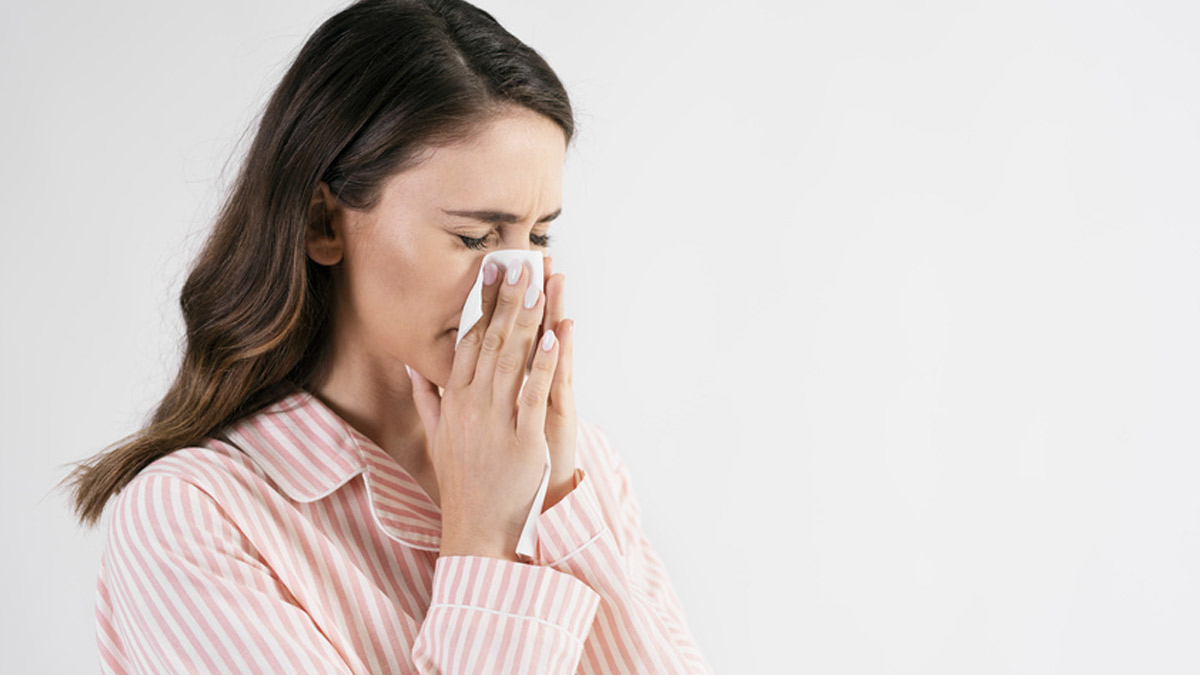Seasonal allergies: 5 essential steps!
Sneezing, coughing, streaming eyes … seasonal allergies blight the lives of around 36 million Americans, and incidence has been rising in recent years. What steps can be taken to relieve the symptoms? Read on to find out.

Identify the allergen/s responsible
Seasonal allergies (seasonal allergic rhino-conjunctivitis (ARC) or hay fever) are caused by an inflammatory reaction in the body to the presence of an allergen. Unlike perennial allergies triggered by year-round allergens (dust mites, animal fur …), seasonal allergies are caused by pollen. The challenge is to determine which pollen, as there are three kinds: tree, grass and herbaceous pollen.
What to do
The only way to find out exactly which allergen is responsible for your symptoms is to undergo a series of tests. Your doctor can refer you to an allergy specialist or you can find ‘self-diagnosis’ kits at your pharmacy.
Monitor the risk periods
Spring heralds the start of the allergy season when trees start to come into flower. However, the risk of seasonal allergies remains high until the end of summer as herbaceous plants continue their pollination until the beginning of autumn. Which are the key months? The pollen season generally peaks between May and August though periods of risk depend on the region and the weather. Part of the American Academy of Allergy, Asthma & Immunology (AAAAI), the National Allergy Bureau provides accurate information on pollen levels throughout the United States, using over 90 counting stations, and reflecting current weather events.
What to do
Consult the high pollen count maps (on the AAAAI website) as soon as the warm weather arrives. Avoid walking in the countryside, protect your eyes with sunglasses and close your windows to prevent pollen from coming indoors.
Boost your immune system
Seasonal allergies weaken the immune system. It therefore makes sense to give it some help in fighting the symptoms of allergic reactions. Certain dietary supplements combine anti-allergy plant extracts with phytonutrients that boost immune and respiratory health and so combat the symptoms of allergy.
What to do
Adopt a healthy lifestyle all year round and regularly consume probiotics to restore the balance of your gut flora as it is plays a direct role in the efficacy of your immune system.
Relieve the symptoms, prevent recurrences
Even though seasonal allergies are not usually serious, they still make life difficult and cause additional fatigue. Since avoiding allergens completely is very difficult, antihistamines are normally recommended for relieving symptoms. Another option is phytotherapy. Certain plants, such as Capparis spinosa (caper bush) or Ribes nigrum (blackcurrant bud absolute) have anti-inflammatory properties and Capparis spinosa also has active principles with antihistamine properties. Another possibility is desensitisation.
What to do
Don’t wait until symptoms appear – take action at the beginning of spring with a course of dietary supplements containing targeted plant extracts.
Beware of cross-reactivity
A phenomenon called cross-reactivity can occur between some types of pollen and certain foods, primarily fruits and vegetables. Intolerance to pollen can thus sometimes cause an allergic reaction of varying severity (itching, swelling…) in the mouth and throat. 30% of those who suffer from seasonal allergies may be affected. The main combinations to avoid are:
- Birch and apple (the most common cross-reaction) but also pear, cherry, celery, kiwi fruit, plum…
- Grasses and tomato, pepper, melon …
- Ragweed and banana, watermelon, cucumber …
- Alder and almond, hazelnut, peach, parsley…
What to do
If you know which type of pollen you are allergic to, avoid eating the fruits and/or vegetables that trigger cross-reactions with that pollen.
3 Days
very good expereince
very good expereince
Jelena Đaković
3 Days
Very good products.
Very good products.
Agnes BENDSAK
5 Days
Just OK
Just OK, ordering from company for many years and being safisfied
Lynn Mae
6 Days
Recomendo
Produtos encomendados são recebidos atempadamente e de acordo com o anunciado! Muito satisfeita!
Carla Sofia
6 Days
Everything is great!
Everything is great!
Jonas
11 Days
The delivery was fast and the product…
The delivery was fast and the product is great
SOMMARIVA Gianni
13 Days
Great service and lots of information
Great service and lots of information
Gabi
16 Days
Service Satisfaction
I’m satisfied with the service; it fulfilled what it set out to do.
Anfhony Abreu
18 Days
Original product and fast delivery
Original product and fast delivery. I haven't started it yet, but will do soon.
Vincenza Catania
21 Days
Good quality
Good quality. Good service.
Leonel Guzman
23 Days
Top!!!!!!!!
Top!!!!!!!!
Michael
25 Days
Excellent!
Products are great and delivered fast!
PARDINI Debora
26 Days
From order to receive the product
From order to receive the product, the process is smooth & fast. It’s good to customers.
WONG Mei Ling
27 Days
Fast delivery
very quick delivery to italy. product is good.
Customer
28 Days
Prompt delivry !!👍
Prompt delivry !!👍
SWEET Christine
of experience
your money back
##montant## purchase




